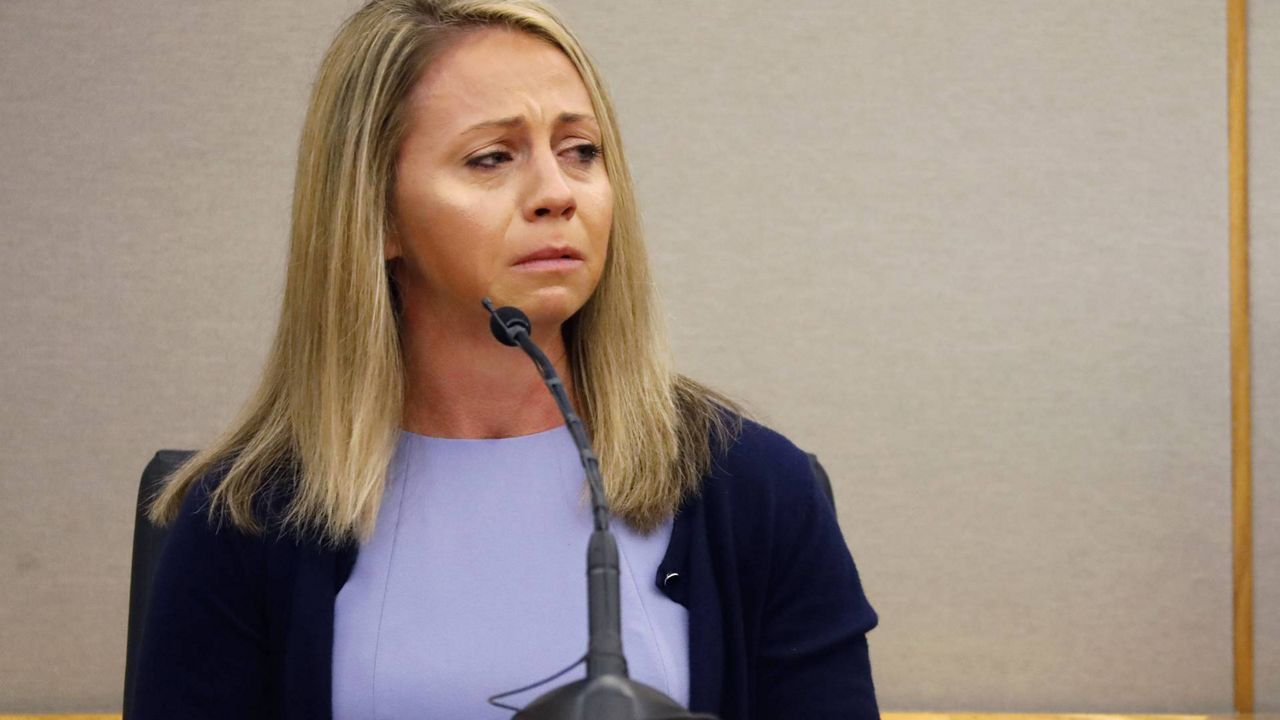DALLAS — An attorney for Amber Guyger, the former Dallas police officer convicted of killing her Black neighbor in his apartment, has asked a Texas appeals court to convict her of a lesser charge or reduce her prison sentence.
On Tuesday, Guyger’s attorney Michael Mowla insisted that evidence presented at her trial did not support a murder charge for the death of Botham Jean.
Mowla argued that the case was about mistake of fact. He raised what he described as two issues in the appellate review; first, that Guyger was not guilty of murder under Texas penal code 19.02 b1 and b2.
Secondly, Mowla is seeking conviction on a lesser charge, criminally negligent homicide, and a reduced prison sentence.
“In a legal sufficiency case, the court knows the issue is whether a defendant is guilty under the hypothetically jury charge and under the hypothetically jury charge, I believe my client was entitled to a mistaken fact instruction,” said Mowla, citing the 1999 Texas Criminal Court of Appeals case of Granger vs. State for reference.
Mowla said the evidence showed Guyger believed she walked into her own apartment, but she didn’t deny that she should’ve paid closer attention to her surroundings to prevent such a “horrific event.”
During arguments, Chief Justice Robert Burns interjected by saying Mowla appeared to be overlooking the fact that Guyger testified that she intentionally shot Jean, seemingly rejecting his notion of an equivalence to the Granger case.
“We wouldn’t be here talking about this had she walked into her own apartment,” Mowla said. “So, she walks in her own apartment and she shoots and kills an intruder. Here, she walked into the wrong apartment and in these horrific set of facts, she shot and killed Mr. Jean. The only difference between those two scenarios is her mistaken belief about where she was.”
Guyger is currently serving a 10-year sentence in a state prison. Mowla hopes to get her conviction tossed.
“I believe, at most, Ms. Guyger is guilty of criminally negligent homicide, because the evidence shows that, beyond a reasonable doubt, that if the court were inclined to go this route that she shot Mr. Jean causing his death — that’s undisputed,” he said. “That she should’ve been aware that was substantial, unjustifiable risks of death from her conduct because she did not pay close attention or close enough attention to her surroundings and missed the clues of the vase, the red door mat, and the apartment number being off one digit."
Dallas County District Attorney Doug Gladden addressed the court about the impact Botham Jean’s death continues to have on the ones who knew him best:
“This is a murder case, not a criminal trespass case,” said Gladden. “When Amber Guyger shot Botham Jean, she didn’t take someone else’s property. She took the life of a human being. She took Allison and Betram’s son. She took Brandt and Alyssa’s brother. She took Alexis Stossel’s friend. She took Joshua Brown’s neighbor. She didn’t make a mistake about that. She knew Botham was a living human being. She pointed a gun at him. She intended to kill him — that’s murder. It’s not negligent. It’s not mistake of fact. It’s not justified. Amber Guyger murdered Botham Jean. This court should say so and affirm the trial court’s judgment.”
Gladden went on to say the Fifth District Court of Appeals had to decide what defensive issues were raised by the evidence and noted that mistake of fact was not raised by the evidence in the case.
“Appellant says that this case is about mistake of fact,” he said. “But, it’s not. Mistake of fact is different from other defensive issues. Most defenses say, ‘Yes, I committed the offense, but it was justified or it was necessary or I was under duress.’ Mistake of fact is different. It says, ‘I didn’t commit the offense because due to a mistake in belief, I did not have the culpable mental state.’”
Gladden said the reasonable belief was not a culpable mental state outlining intent, knowledge, recklessness or criminal negligence as the only viable states and can only be applied to the result of the conduct, the nature of the conduct or the circumstances surrounding the conduct.
“It’s a term that’s used in the penal code as a part of defensive issues and affirmative defenses,” said Gladden of reasonable belief. “Specifically, in this case, self-defense requires you to have a reasonable belief that deadly force was immediately necessary. That’s not a culpable mental state — that’s simply a defensive issue.”
Gladden insisted that no evidence was provided that showed that any mistaken belief on Guyger’s part that negated her intent to murder Jean.
“The evidence in this case is sufficient to prove the elements of murder and to reject appellant’s self-defense claim and mistake of fact was not raised by the evidence in this case,” he said. “I would ask that this court affirm the judgment of conviction.”
After roughly 40 minutes, Burns concluded the hearing.
“We’ll take the case under advisement, and we will issue our opinion in due course," he said.



